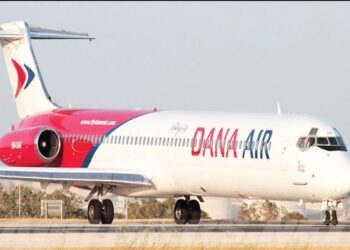The Nigerian aviation sector has been experiencing several problems of late, with 3 major domestic airlines suspending operations or shutting down totally, with Arik Air joining the list yesterday. The state of things in the sector is so poor that a representative of the remaining airlines said their operations are ‘a national service’.
However, what has brought the sector to this grave point it has reached today? Agreed, the economic downturn and shortage in crude oil production has had its effects on the sector. But industry experts, most recently the National Association of Nigeria Travel Agencies (NANTA) give other internal reasons why the sector is facing the current challenges. Here are some of them has highlighted by NANTA
- Multiple Surcharges on Passengers: NANTA claimed that both he Federal Airports Authority of Nigeria (FAAN) and the Nigerian Civil Aviation Authority (NCAA) impose $50 per passenger and $20 per passenger respectively which further hike passenger fares on international flights.
- Government policies: NANTA also blamed government policies for the problems of the aviation sector, especially during the scarcity of forex, wondering why the industry was not granted concession.
- Hoarding of data: NANTA accused both the NCAA and FAAN of hoarding the relevant data required for an honest assessment of the situation on ground. This, NANTA said, was due to the bodies’ fear of being caught in corrupt practices.
- Obsolete Legislature: According to NANTA, the policies currently in use in the industry are obsolete, with many loopholes and require overhauling. According to them, the new NCAA which was reviewed in 2006 is not yet operational.
- Corruption: NANTA accused NAMA and FAAN of corruption and diversion of public funds, citing the various charges they impose on international flights. These include $100 million on landing and parking, $60 million on air navigational and air traffic services and $20 per passenger for security. For domestic flights, NANTA claims N1000 is charged on over 100,000 passengers on daily basis. Most of these funds, NANTA alleges does not go into the government coffers.
Part of this article originally appeared in Guardian Newspapers.




















